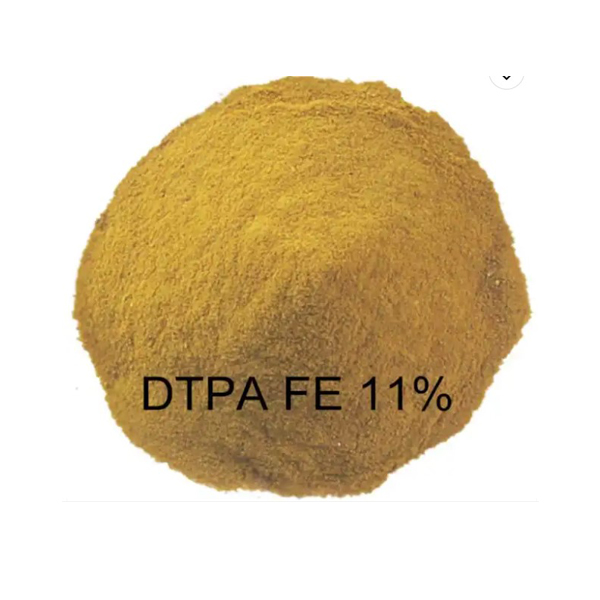
News
Αυγ . 03, 2024 01:53 Back to list
Exploring the Role of Oxidizing Agents and Chelating Agents in Chemical Reactions and Applications
The Role of Oxidizing Agents and Chelating Agents in Chemistry
In the intricate world of chemistry, two categories of substances play crucial roles in various chemical processes oxidizing agents and chelating agents. Understanding their functions, characteristics, and applications can shed light on their importance in both industrial and laboratory settings.
Oxidizing Agents
Oxidizing agents, or oxidants, are substances that can accept electrons from another species in a chemical reaction. This process is known as oxidation. Common examples of oxidizing agents include potassium permanganate (KMnO₄), hydrogen peroxide (H₂O₂), and chlorine gas (Cl₂). They are instrumental in diverse applications, ranging from environmental science to pharmaceuticals.
In organic chemistry, oxidizing agents facilitate the transformation of alcohols into carbonyl compounds. For instance, the oxidation of ethanol to acetaldehyde can be achieved using dichromate in acidic conditions. Moreover, in environmental applications, oxidizing agents are employed to treat wastewater, breaking down hazardous pollutants into less harmful substances.
The effectiveness of oxidizing agents can be determined by their reduction potential; the higher the reduction potential, the stronger the oxidizing agent. This characteristic is pivotal when selecting appropriate oxidants for chemical reactions or industrial processes, as it dictates the efficiency and outcome of the reaction.
Chelating Agents
Chelating agents, on the other hand, are molecules that can form multiple bonds with a single metal ion. These agents create stable complexes with metals, effectively “grabbing” them and preventing them from reacting with other substances. Common chelators include ethylenediaminetetraacetic acid (EDTA), citric acid, and dimercaprol.
oxidizing agent and chelating agent quotes

One of the most significant applications of chelating agents is in metal ion removal. They are frequently utilized in medicine to treat heavy metal poisoning. For example, EDTA is administered to patients to bind excess lead or mercury, promoting their excretion from the body and mitigating toxicity. In agricultural practices, chelating agents help in the solubilization of essential trace elements, improving their availability to plants and thus enhancing growth.
Furthermore, chelating agents are essential in industrial processes, particularly in metal plating and water treatment. By binding to metal ions, they prevent undesired reactions that could lead to contamination or the formation of scale in equipment.
The Interplay Between Oxidizing and Chelating Agents
In many chemical reactions, oxidizing agents and chelating agents can work synergistically. For example, in analytical chemistry, the presence of a chelator can enhance the effectiveness of an oxidizing agent by stabilizing the metal ions involved. This interplay is crucial in colorimetric analyses, where the concentration of a metal ion is determined based on its reaction with a specific oxidizing agent in the presence of a chelator.
Moreover, in biological systems, chelating agents can influence the behavior of metal ions, which often act as cofactors in enzymatic reactions. The oxidation state of these metal ions can be modulated by various oxidizing agents, thus affecting metabolic pathways and biological processes.
Conclusion
Oxidizing agents and chelating agents are fundamental components in the realm of chemistry, each serving unique yet interrelated purposes. With applications spanning environmental remediation, industrial processes, and biological systems, they exemplify the complexity and interconnectedness of chemical interactions. As research continues, the potential for new applications and improved efficiency in the use of these agents remains a promising field of study in chemistry. Their roles not only highlight the creativity of chemical manipulation but also underscore the importance of understanding these substances for advancing scientific and industrial endeavors.
-
Polyaspartic Acid Salts in Agricultural Fertilizers: A Sustainable Solution
NewsJul.21,2025
-
OEM Chelating Agent Preservative Supplier & Manufacturer High-Quality Customized Solutions
NewsJul.08,2025
-
OEM Potassium Chelating Agent Manufacturer - Custom Potassium Oxalate & Citrate Solutions
NewsJul.08,2025
-
OEM Pentasodium DTPA Chelating Agent Supplier & Manufacturer High Purity & Cost-Effective Solutions
NewsJul.08,2025
-
High-Efficiency Chelated Trace Elements Fertilizer Bulk Supplier & Manufacturer Quotes
NewsJul.07,2025
-
High Quality K Formation for a Chelating Agent – Reliable Manufacturer & Supplier
NewsJul.07,2025
